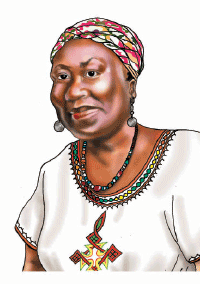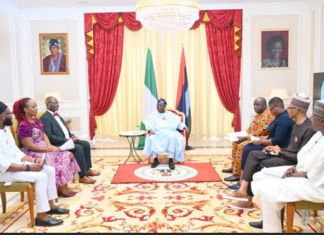Bigotry. Noun. 1. Stubborn and complete intolerance of any creed, belief, or opinion that differs from one’s own. 2. The actions, beliefs, prejudices, etc. of a bigot.
North Korea is impressive in the way it succeeds at mass choreographing the public behaviour of its citizens. When the former leader, Kim Jong-Il died, the people trooped out in their thousands, wailing uncontrollably at the loss of their departed leader. And just recently, on Friday, 10 October, 2014, when the country celebrated the founding of the ruling Workers’ Party, we again saw on television thousands of identically-clad citizens performing the exact same dance steps. One is bound to marvel at the whole apparatus of state that must be in place to ensure that absolutely nobody steps out of the established order – and to wonder whether it is worth it, on the long run.
While North Korea is singled out here for mention as a contemporary example of state bigotry, it is a well-known fact that this particular human failing is one that plagues many a leader, at every single level. The class captain writes down little Tony’s name as one of the noise makers and, in spite of proofs to the contrary, refuses to concede that he had made a mistake; the gang leader constantly bullies other members into submission; the husband refuses to acknowledge his wife as being capable of deep thought and thus does not ask her opinion on important matters; the employer only barks out orders at his employees; the political kingpin believes it is his right to determine all that happens within the party; and most institutional leaders quickly divide the members of the organisation into those who are “for us” and those “against us”. It’s all bigotry, and it’s terribly crippling, for individuals as well as institutions and nations.
In The book that transforms nations (YWAM Publishing, 2007), Loren Cunningham states the following: “Leaders need to understand unity and diversity. It takes many kinds of people doing different kinds of work, contributing their best ideas and efforts to create the most productive, prosperous society. If leaders don’t value creative differences in people, their nation will miss out on what it can achieve.” This is absolutely true, and leaders who understand it do not care so much whether they like a person or whether the person likes them; all they are interested in is the benefit to the organisation of what an individual has to offer. My husband often cites the case of an American professor who, although he did not like a particular individual, yet made it clear to others that he was the best they could get for a certain job: “As for Jim, I don’t care for his guts, but he’s the one who can deliver on this job.”
Bigotry has to do with being consumed with oneself – at the expense of everything else. It does not matter to the bigot if the institution collapses, as long as his (or her) opinion prevails. Indeed, one can go as far as saying that bigotry is like witchcraft, for the witch’s aim is to control what happens to a person by all means possible. According to the given definition of bigotry, the stubborn and complete intolerance of any opinion other than one’s own means, in effect, that one seeks to control how other people think. I am just wondering, is there currently an attempt to bewitch Nigerians? Or rather, isn’t there one? When those in governance are the ones evaluating their own performance and giving themselves merit awards, are we not being bewitched? Is this not a clear and deliberate orchestration of how they want us to think?
The fearful thing is that there are enough people who fall for this ploy to control our minds. I concede; it is difficult to resist the bewitching power of the artillery arrayed against us. It is said that if you hear a lie repeated over and over again you are likely to end up believing it. And these days, the spin-doctors aren’t giving us any breathing space, are they? They come at us from all angles, pushing their principals’ “accomplishments” in our faces and employing master actors whose job is to convince us that we are blind – and stupid! – if we do not see what they are seeing. (Or is this merely acting; that is, quite simply a matter of “stomach infrastructure”?)
And yet, the proclaimed vision is that of transformation, of greatness. How come the path to the fulfilment of these desired goals is so difficult to follow? Which nation ever became great by having mostly “Yes-Men” and incompetent hands surround their leader? Did ever a nation achieve prosperity for its people by entrenching corruption and granting state recognition and pardon to convicted offenders? A nation that does not know how to forge unity while actively promoting diversity cannot attain its full potential. It is not only that dissenting voices should not be stifled; rather, they should be actively promoted. It is in the diversity of opinions that creativity is set loose, which will lead to our prosperity.
If there ever were a creative and ingenuous people on the face of the earth, they are most definitely Nigerians. Just look at what we manage to achieve in a stifling, limiting environment. Now, imagine what would happen if there were to emerge leaders who are not trying to bewitch us!













